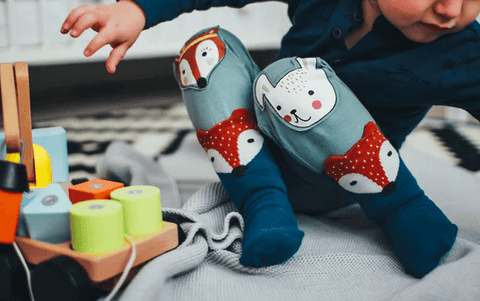
Why Just Play is More than Okay
Young Children learn best through hands-on exploration. They learn best through play. So how can you provide purposeful play experiences for your child?
“Play is the highest form of research.” - Albert Einstein
“Play is our brain’s favorite way of learning.” -Diane Ackerman
“Life must be lived as play.” - Plato
“Play is the work of childhood.” -Maria Montessori
“Play gives children a chance to practice what they are learning.” -Mr. Rogers
“Play. It brings joy. It is within this context that learning can occur.” - Kyle Snow, Ph.D
Don’t you just love these quotes? Geniuses, pediatricians and child development experts alike all agree that play is the most important activity for young children. Yet, our culture seems to value academic achievement more than it does natural play. Even for our youngest children.
One of the questions I got most often as the owner of a preschool was, “how do you teach academics?”. It was an important question, one that most parents were genuinely concerned with for their children who ranged in ages from 18 months-5 years. My answer to all of those parents was, “Play”. Yes, the deepest, most meaningful learning occurs through play.
A young child’s brain is a rapidly working mechanism, taking in new information all the time. They are in a continuous state of learning. Researchers for decades have found that children from the ages 0-6 learn best without any formal instruction. The Waldorf philosophy of learning for example actually delays academic instruction for children until after 6 years old. Young Children learn best through hands-on exploration. They learn best through play. So how can you provide purposeful play experiences for your child?
-Invest in quality toys.
We’ve created an article for you all about this. Be sure to choose toys that are open-ended and encourage your child to problem solve. That being said…..
-Don’t overthink it. Plastic measuring cups in a sink full of water is meaningful play for a child. Crunchy their feet in a pile of leaves is meaningful play for a child. Sometimes we spend a lot of money on toys that never get used, when our children just want to play with the cardboard box that it came in.
-Prioritize Play. Allow for uninterrupted periods of time for playing. That means that children should have time, space and freedom to play. They should have large stretches of time indoors and outdoors to explore and get immersed in what they are doing.
-Be a facilitator and observer. Not a director. When your child is playing, be close by and pay attention to what they are doing. Allow them to struggle a little bit and see if they can figure out how to make that block structure more stable, or fit the puzzle piece in correctly. Resist the urge to jump in immediately and do it for them. If they look to you for help or guidance, you can ask questions and model possible solutions.
-Provide Sensory Experiences. Young children under the age of 6 learn through their senses. Not just through things that have texture or a tactile experience, but through sounds, movement, smells. They need to manipulate concrete objects. So save the worksheets and flashcards for older children.
Prioritizing play is the best way to give your child a lifelong love of learning and great foundation for academic success in the future. There’s no rush. Remember the quotes above, and enjoy playtime with your baby.
|
|
Meet Our KeaMommy Contributor: Amanda Amanda Dixon is a mother of three young children and has her master’s degree in early childhood education. She spends her days homeschooling her kiddos, freelance writing and teaching college. Her favorite things are a good cuppa tea, chocolate chip cookies, books, and her 3 dachshunds. |


























































